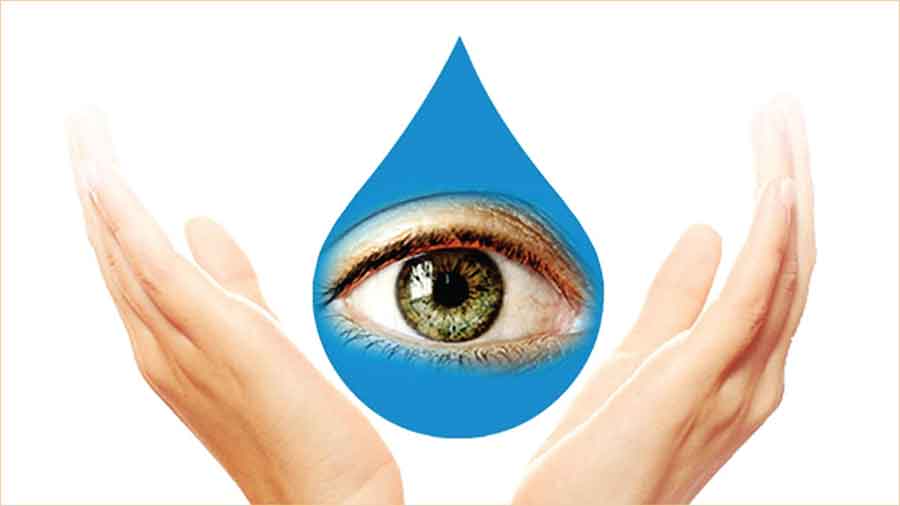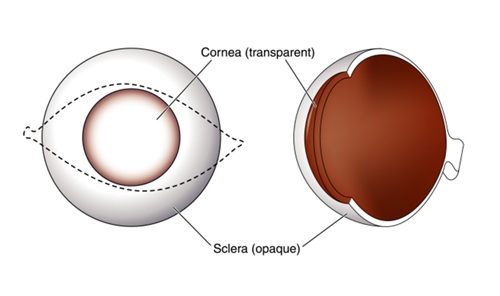Eye Donation in Navi Mumbai
At Laxmi Eye Institute, Internationally recognized eye hospital in Navi Mumbai, centres at Panvel, Kharghar, Kamothe and Dombivali.

What is Eye Donation?
The process of donating the eyes of a loved one after his or her death by his or her relatives is called Eye donation. It's a purely voluntary gesture.
What is the need for Eye Donation?
In India, there are 1.1 million patients who are blind due to an opaque cornea. Most of these patients are young adults and children who have a long life to live. Fortunately, their eyesight can be restored by replacing their opaque corneas with a healthy transparent one from a donor. They can enjoy good eyesight for the rest of their lives because they have healthy and normally functioning inner structures. Thus eye donation is important to give the noble gift of sight to all cornea blind patients.
What can I do to help?
A common citizen of India, like you, can do a lot to help in this noble cause. First, you can pledge to donate your own eyes after your death and make your wish known to your close relatives. Second, you can donate the eyes of your loved ones after their deaths and encourage your friends and relatives to do so too. It can be made a family tradition. Third, you can provide monetary assistance, as per your capabilities, to your nearest eye bank to continue their activities. Fourth, you can act as a Volunteer and Ambassador for eye donation in your communities and carry out small awareness programs.
Who can donate eyes?
A person of any gender, age, religion, race, caste, and creed can donate eyes after death. Having diseases like Diabetes or high Blood pressure are not roadblocks to eye donation. A person who had had cataracts, glaucoma, or retinal surgery in their lifetime too, can donate eyes after death.
I was told, 'A blind man can donate eyes too'. How's that possible?
That's perfectly true. There are many reasons for blindness. Diseases of the Retina (the light-sensitive layer of the eye), Optic nerve (connection of eye and brain), or the brain itself can cause blindness. In all these cases the Cornea of the blind person may be absolutely healthy which can be donated after death to benefit others. Imagine a camera with a burnt film or poor sensor. You can still detach its perfectly good lens and attach it to another camera. It's the same.
What if my relatives did not pledge their eyes during their lifetime?
It does not matter, if you are the rightful heir, next-of-kin, or a close relative of the deceased person you can give permission (legal consent) on their behalf, for eye donation. Indian law has a provision known as "Implied Consent" wherein, it is assumed that the deceased was willing to donate eyes unless he/she had expressly forbidden anyone to do so during his/her lifetime.
Is the whole eye of a person removed? Will it lead to a disfigurement of the face of the deceased?
Nowadays, very few eye banks remove the whole eyes. At Laxmi Eye Bank, we follow a very precise retrieval technique in which we excise only the usable cornea and a small rim of surrounding tissue. Thus there is no disfigurement of the deceased's face.
Is the cornea the only re-usable part of the eye?

No, in some cases we also use the sclera (white outer cover of the eye). The junction of the cornea and sclera is the location of highly specialized cells called stem cells which can be used to treat cases of severe ocular surface injury like Chemical burns of the eye, Stevens-Johnson syndrome, and other diseases where these cells may be deficient in the recipient.
What is the procedure of eye donation in Navi Mumbai?
If you wish to donate your eyes after death, simply call up your nearest eye bank and ask for their pledge card. You can fill in your name and of all those in your family who wish to donate eyes and submit it to the eye bank. They will provide you with a donor card which you need to carry all the time. Most importantly, you should also inform your close relatives of your wish to donate eyes after death.
If you wish to donate the eyes of your deceased relative, just call the nearest eye bank. If you don't know the number, call 1919 which is a national helpline number where you will be guided to your nearest eye bank. Nowadays, this information can be easily accessed over the internet through your smartphones. The eye bank team will reach your given address at the earliest and finish the donation procedures in 15-20 minutes only. There are no financial transactions involved.
'Do's and 'Don't's for eye donation?
Eye health deteriorates gradually after a person's death. It's best to retrieve donor eyes as soon as possible preferably within 6 hours of death. So if you wish to donate the eyes of your dear one, call your nearest eye bank as soon as possible. Apart from this follow these simple steps:
Keep the eyes of the deceased person shut. If possible keep a piece of moist cloth on the eyes.
Switch of any fan which is directly over the deceased person's body. You can switch on an air conditioner in the room if needed.
Raise the head end of the deceased person by placing 2 pillows under it. This makes the retrieval procedure easier.
Keep a copy of the death certificate/note, as issued by the Certifying Physician, and other relevant past medical documents ready. This helps to expedite the whole process. In the case of hospital death, the rough Death Certificate is usually issued by the hospital.
It's our sincere request to you to be our partner in eradicating Corneal Blindness from India. As we have cornea treatment in Mumbai, we always have need of it.
For further information please feel free to call our Laxmi Eye in Navi Mumbai - Bank number. +91-9549966816
Laxmi Eye Bank
Uran Road, Panvel – 410206, Maharashtra, India
Make An Appointment
All Copyright© Reserved @ Laxmi Eye Hospital And Institute
